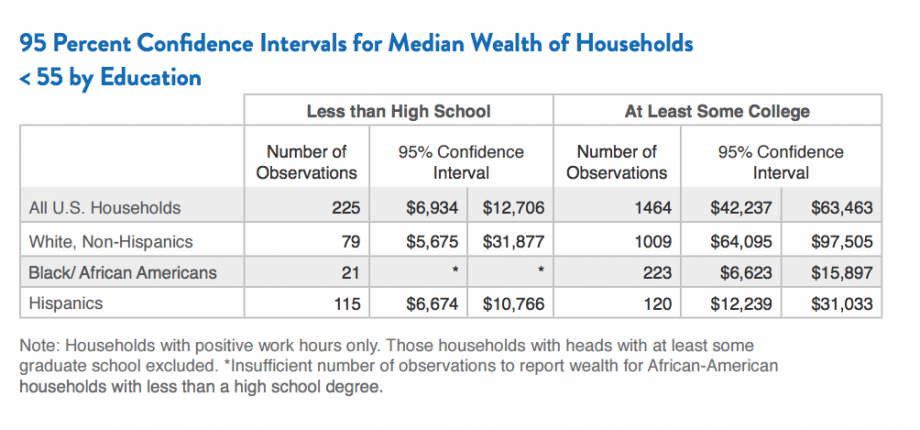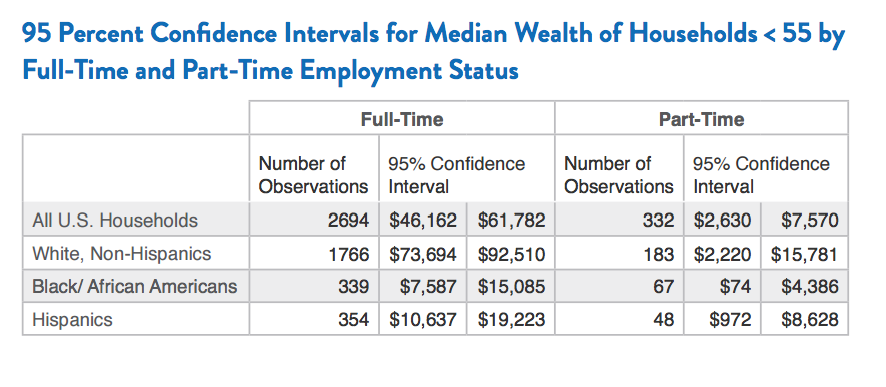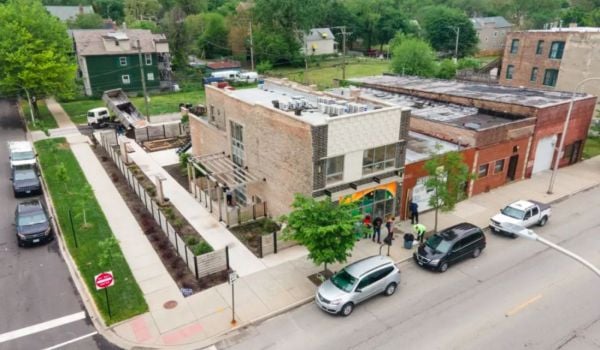From slavery to redlining, it’s pretty clear that the country’s racial wealth gap comes from layers of intentional public policy, compressed over the years like sedimentary rock. But that’s not always understood in a culture that tends to forget a still (very) present history of racism and credit individual acts — i.e., going to college, working full-time — with the accumulation of wealth.
Today, a paper titled “The Asset Value of Whiteness” from Demos and the Institute for Assets & Social Policy explores some of the “popular explanations” for the gap between white, African-American and Latino earners. It seeks to show that “changing individual behavior in areas such as education, family structure, full- or part-time employment, and personal consumption habits would not reverse the economic harm done by structural racism,” according to a release.
Take higher education, that force that is supposed to level the playing field no matter a person’s socioeconomic background (never mind that research shows that, increasingly, access to college is determined by socioeconomic status). Go to college, the thinking goes, and, black or white, you’ll be on the road to a comfortable middle-class salary.
But higher education doesn’t always work that way.
“Going to college isn’t enough to overcome racial disparities in wealth,” the researchers state. “Among households under age 55, the median white high school dropout has similar wealth to the median black adult who graduated high school and attended at least some college, according to data from the Survey of Consumer Finances. … Similarly, the median Latino adult who attended college has similar wealth to the median white high school dropout.”
In fact, the median white adult who attended college has seven times more wealth than the median black adult who attended college, they found.

(Credit: Demos)
And what about working full-time? According to another popular explanation, the racial wealth gap could be due to more full-time jobs available to white workers.
But a side-by-side comparison of workers with similar hours still showed disparities according to race: “The median white household that includes a full-time worker has 7.6 times more wealth than the median black household with a full-time worker. The median white household that includes a full-time worker also has 5.4 times more wealth than the median Latino household with a full-time worker.”

(Credit: Demos)
The main takeaway is similar to research that has been done on the gender pay gap: “Building a more equitable society will require a shift in focus away from individual behavior toward addressing structural and institutional racism.”
Next week, Demos and the Institute for Assets & Social Policy will also launch a new website with more information on their “racial wealth audit” and tactics for evaluating a potential policy’s impact on the racial wealth gap.
“For centuries, white households enjoyed wealth-building opportunities that were systematically denied to people of color. Today our policies continue to impede efforts by African-American and Latino households to obtain equal access to economic security,” Amy Traub, associate director of policy and research at Demos and a co-author of the report, said in a statement. “When research shows that racial privilege now outweighs a fundamental key to economic mobility, like higher education, we must demand our policymakers acknowledge this problem and create policies that address structural inequity.”

Rachel Dovey is an award-winning freelance writer and former USC Annenberg fellow living at the northern tip of California’s Bay Area. She writes about infrastructure, water and climate change and has been published by Bust, Wired, Paste, SF Weekly, the East Bay Express and the North Bay Bohemian
Follow Rachel .(JavaScript must be enabled to view this email address)
















